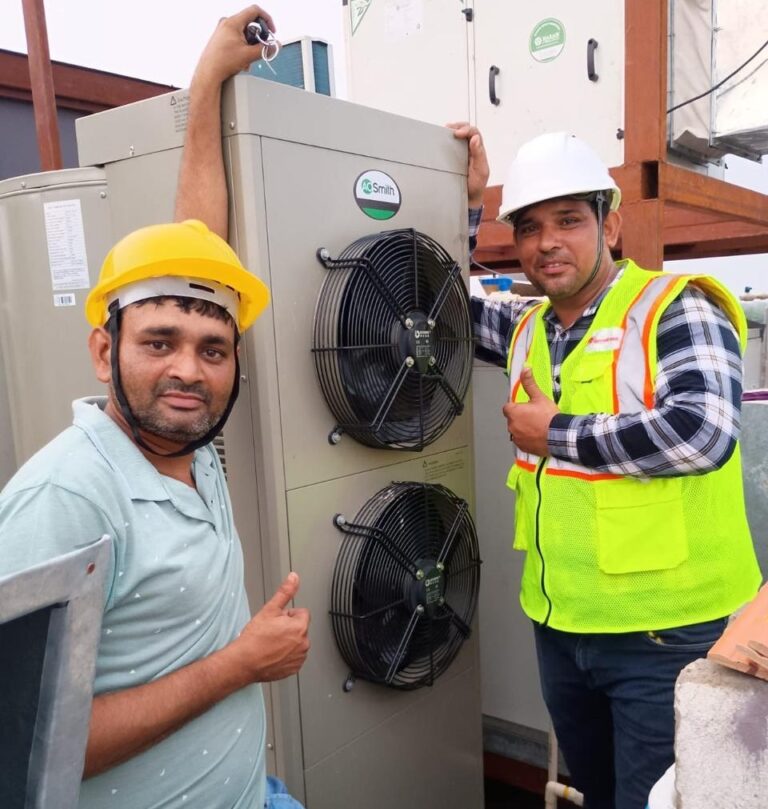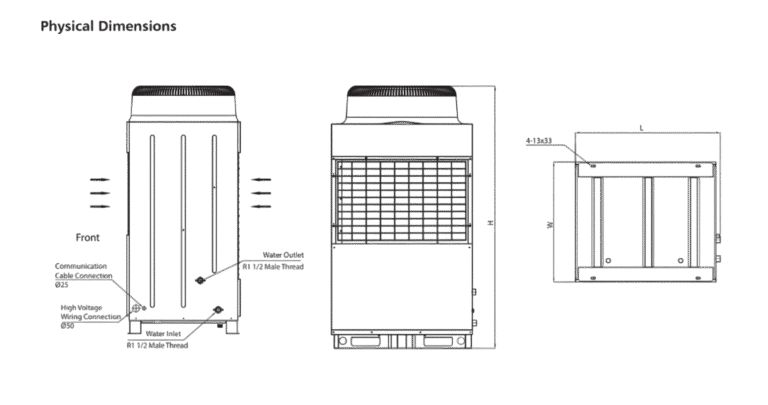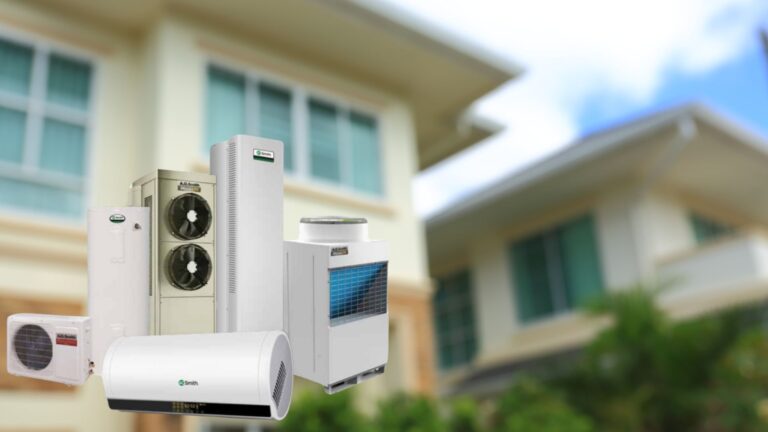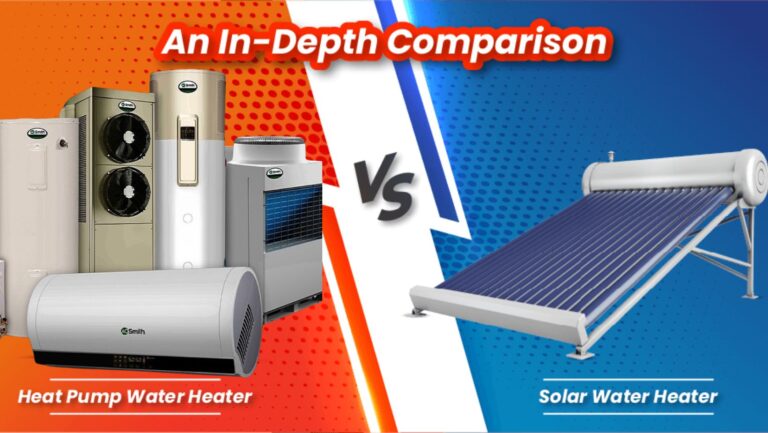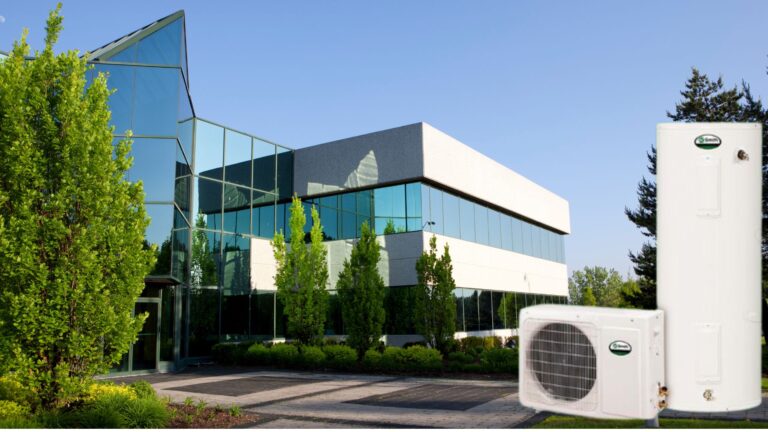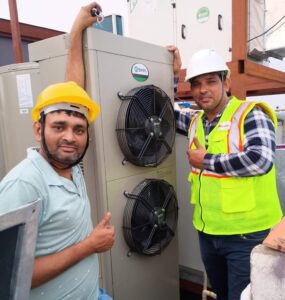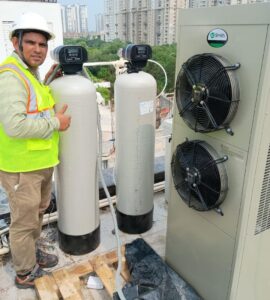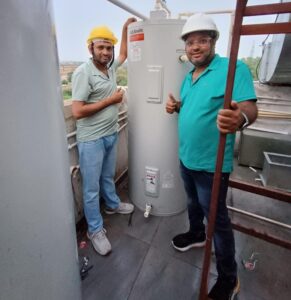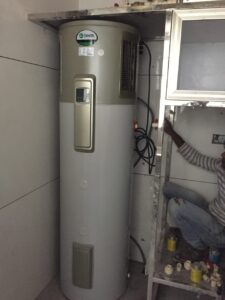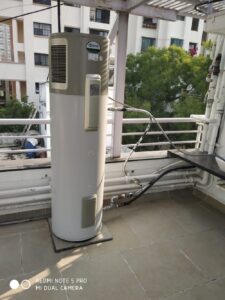Introduction
An electric water heater is one of the most common appliances used in households to meet hot water needs. Whether it’s for a warm shower, dishwashing, or laundry, electric water heaters are essential for providing instant hot water at the flick of a switch.
However, with evolving technologies, other options like heat pump water heaters, gas water heaters, and solar water heaters have also entered the market. Among these, electric water heaters remain a preferred choice due to their simplicity, affordability, and ease of installation.
In this guide, we will explore electric water heaters, compare them with other types of water heaters, and help you choose the best option for your home.
What is an Electric Water Heater?
An electric water heater uses electric heating elements to heat water stored in a tank. It is powered by electricity and is available in various sizes, making it suitable for households of all sizes.
Unlike a gas water heater that relies on natural gas or a heat pump water heater that draws heat from the surrounding air, an electric water heater directly uses electricity to heat water, making it simple and efficient for everyday use.
Types of Electric Water Heaters
There are two main types of electric water heaters available:
- Storage Water Heaters
These are the most common type of electric water heater. They consist of a tank that stores and heats water. The water is kept at a constant temperature, ready for use when needed. - Tankless Water Heaters
Also known as on-demand water heaters, these heat water only when you need it. They don’t store hot water, making them more energy-efficient compared to traditional storage tanks.
How Does an Electric Water Heater Work?
An electric water heater works by using heating elements that are submerged in the water tank. When you turn on the water heater, the electric elements heat the water to the desired temperature. A thermostat helps regulate the temperature to prevent overheating.
Here’s a simple breakdown of the process:
- Cold Water Inlet: Cold water enters the tank through the inlet pipe.
- Heating Elements: The electric heating elements heat the water inside the tank.
- Thermostat: The thermostat monitors and maintains the set temperature.
- Hot Water Outlet: Hot water is delivered to your faucets and showers through the outlet pipe.
Electric Water Heater vs. Heat Pump Water Heater
While both electric water heaters and heat pump water heaters provide hot water, they differ significantly in terms of energy efficiency, cost, and working mechanisms.
| Feature | Electric Water Heater | Heat Pump Water Heater |
|---|---|---|
| Energy Efficiency | Less efficient | Highly efficient (up to 300%) |
| Initial Cost | Lower | Higher |
| Maintenance | Minimal | Requires regular maintenance |
| Heating Time | Faster | Slower |
| Environmental Impact | Higher carbon footprint | Eco-friendly |
If you’re looking for a cost-effective and simple solution, an electric water heater is the right choice. However, if you want to reduce your energy consumption and carbon footprint, you may want to consider a heat pump water heater.
Advantages of an Electric Water Heater
Choosing an electric water heater for your home comes with several benefits:
1. Affordable
Electric water heaters are more affordable compared to heat pump water heaters or gas water heaters. They have a lower upfront cost, making them accessible for most households.
2. Easy to Install
Unlike gas water heaters that require a gas connection or solar water heaters that need solar panels, electric water heaters are easier to install and can be set up in almost any location with an electricity supply.
3. Low Maintenance
Electric water heaters require minimal maintenance. They don’t have moving parts or complex systems like heat pump water heaters, which makes them more reliable.
4. Faster Heating Time
Compared to heat pump water heaters, electric water heaters heat water more quickly. This makes them suitable for homes with higher hot water demand.
Disadvantages of an Electric Water Heater
While there are several advantages, electric water heaters also have some downsides:
1. Higher Energy Consumption
Electric water heaters consume more energy compared to heat pump water heaters, which are known for their energy efficiency.
2. Higher Electricity Bills
Since they rely solely on electricity, they can lead to higher electricity bills, especially in homes with high hot water usage.
Factors to Consider Before Buying an Electric Water Heater
Before purchasing an electric water heater, keep the following factors in mind:
- Capacity
Choose a water heater that suits your household’s size and hot water requirements. For larger families, a bigger tank is essential. - Energy Efficiency
Look for models with a higher energy factor (EF) rating to ensure better efficiency and lower electricity bills. - Installation Cost
Consider the overall cost, including the price of the unit, installation fees, and any necessary plumbing work. - Warranty
Check the warranty period to ensure you’re covered in case of any issues.
Frequently Asked Questions (FAQ)
1. How Long Does an Electric Water Heater Last?
On average, an electric water heater lasts between 10 to 15 years, depending on usage and maintenance.
2. Can I Use an Electric Water Heater in a Large Home?
Yes, electric water heaters come in various sizes, from compact models for small apartments to larger tanks for bigger households.
3. How Can I Reduce My Electricity Bills with an Electric Water Heater?
To reduce electricity bills, consider the following tips:
- Lower the thermostat setting.
- Insulate the water tank.
- Use hot water efficiently by limiting showers and using cold water for laundry when possible.
Conclusion
An electric water heater is a reliable and affordable solution for providing hot water in homes. While other options like heat pump water heaters and gas water heaters are available, electric water heaters remain a popular choice due to their ease of use and low maintenance.
However, if you’re concerned about energy efficiency and long-term cost savings, you may want to explore other options like heat pump water heaters. Make sure to choose a water heater that best suits your household needs and budget.


